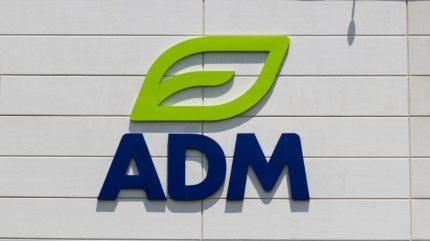
US-based Archer Daniels Midland (ADM) and Japan’s Mitsubishi Corp. have signed a non-binding agreement to form a “strategic” alliance.
The partnership, inked through a memorandum of understanding (MoU), will “explore potential areas of future collaboration across the agriculture value chain”, according to a statement.

Discover B2B Marketing That Performs
Combine business intelligence and editorial excellence to reach engaged professionals across 36 leading media platforms.
The MoU is set against a backdrop of what ADM calls the growing “importance of secure and resilient food and agriculture supply chains”.
ADM said the partnership is driven by “short-term dislocations” and “structural demand shifts powered by global population growth, economic development, and increasing consumer preference for sustainably sourced products”.
The Chicago, Illinois-headquartered company added: “It has thus become essential to adopt a comprehensive and cross-industrial approach, connecting multiple businesses in different segments to address these challenges.”
ADM generated $85.5bn in revenue during the year that ended on 31 December 2024, down from $93.9bn in the prior 12 months.

US Tariffs are shifting - will you react or anticipate?
Don’t let policy changes catch you off guard. Stay proactive with real-time data and expert analysis.
By GlobalDataOperating profit dropped to $4.2bn from $5.9bn, while net profit decreased to $1.8bn from $3.4bn.
The company processes crops such as corn, soybeans, and wheat into food ingredients, animal feed, and biofuels, while providing nutrition, supply chain, and sustainability solutions.
Its portfolio includes alternative proteins, edible oils, flours, sweeteners, starches, texturants, and microbiome solutions for food and beverage applications.
The company also offers feed additives, amino acids, and aquaculture solutions to support animal nutrition.
Mitsubishi’s food division operates across the entire value chain, from sourcing and processing to distribution and sales.
It supplies raw materials such as grains, seafood, and livestock products, while managing consumer food brands such as Princes Group and TH Foods. The company also operates a food ingredients division.
The marine and farm divisions handle seafood, meat, dairy, and fresh produce, while the food resources division supplies grains, sugar, and oils.
ADM said in the statement: “The companies hope that these broad and deep capabilities will allow them to create value by identifying new opportunities to meet global needs ranging from a robust biofuel supply chain to a stronger, more resilient global food system.”



